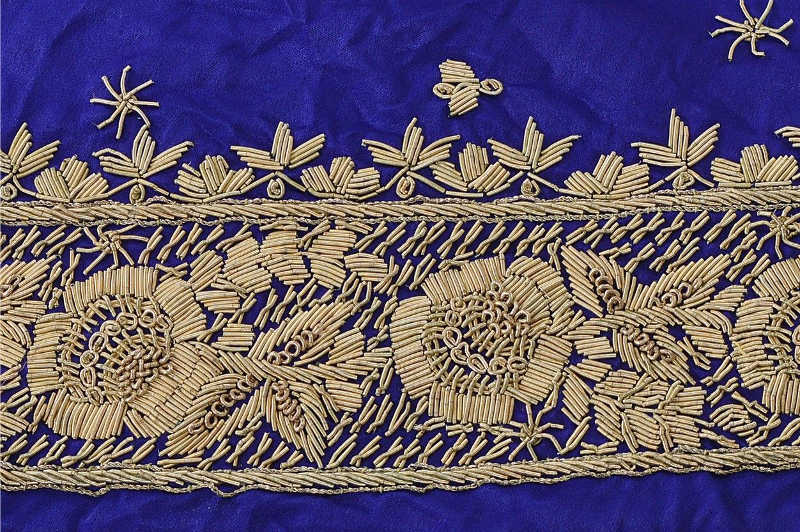===
0689,
2
===

=== |
 |
asbaab : 'Causes, motives, means; resources; —s.m. sing. Implements, tools, instruments, apparatus, materials; goods, chattels, effects, property; furniture; articles, things; commodities, appliances, machinery; stores, provision; funds; necessaries; baggage, luggage; cargo'. (Platts p.47)
muhaiyaa : 'Disposed in order, arranged; got together, got ready, prepared, ready'. (Platts p.1102)
andeshah : 'Thought, consideration, meditation, reflection; solicitude, anxiety, concern ... ; doubt, misgiving, suspicion; apprehension, dread, fear; danger, peril'. (Platts p.91)
FWP:
SETS == MULTIVALENT WORDS ( andeshah )
MOTIFS
NAMES
TERMS == IHAM; PADDINGSRF has done an excellent explication. The plays on asbaab and (especially) andeshah serve to complicate any possible understanding of the verse. Above all what's piquant is the claim that in the speaker's view everything was ready-- except, it happened, for 'concern', 'fear', 'thought' about a shroud. We can't help but speculate what exactly the problem may have been; but it's also clear that the verse has been so cleverly contrived that we can never do anything more than speculate.
And how can this verse not remind us of Premchand's last and greatest short story, 'The Shroud' [kafan]?